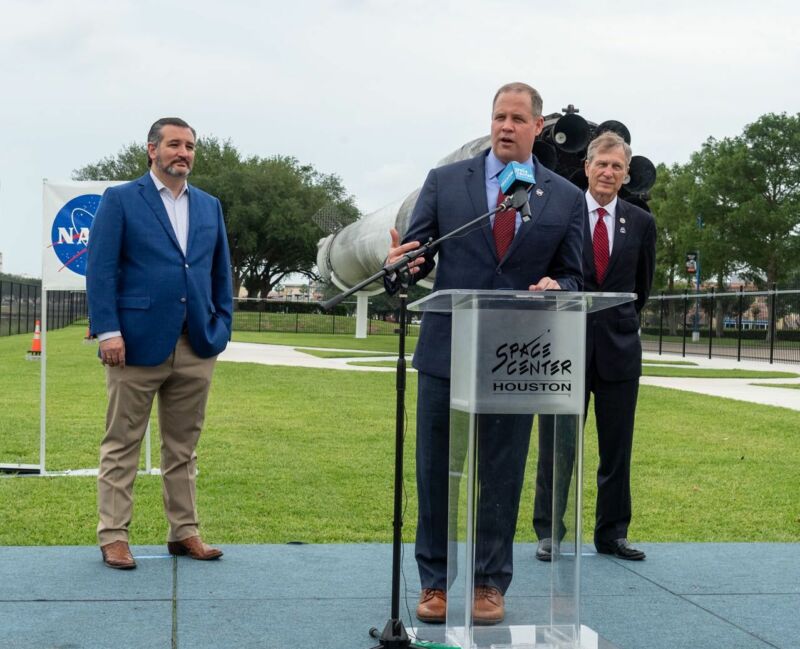
Enlarge / Sen. Ted Cruz, NASA Administrator Jim Bridenstine, and US Rep. Brian Babin stand in front of a flight-proven Falcon 9 rocket at Space Center Houston on Sunday. (credit: Space Center Houston)
Although the saying probably originated with one of the greatest Roman historians, Tacitus, President John F. Kennedy popularized the phrase—"Success has a hundred fathers, and defeat is an orphan." This aphorism can be applied to commercial space now that SpaceX has successfully launched two NASA astronauts to the International Space Station on a Falcon 9 rocket inside Dragonship Endeavour.
Since this flight, several congressional leaders have begun speaking more about commercial space, an approach in which private companies self-invest in their hardware, own their vehicle, and sell services to NASA. Prior to Dragon's flight, no private spacecraft had ever flown humans into orbit before—only large government space programs in the United States, Russia, and China had done it. Now, private companies such as SpaceX are demonstrating their capabilities.
US Rep Brian Babin, a Texas Republican whose district includes Johnson Space Center, offered fulsome praise for SpaceX and its achievement after Dragon's flight. "Congratulations to SpaceX, who have never quit, and who have really revolutionized the launch business, and bringing costs down," he said. "These are going to be a great boon to our space program going into the future."
No comments:
Post a Comment